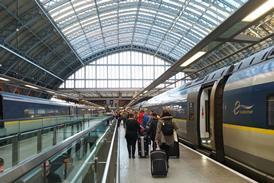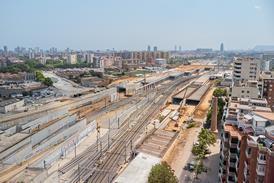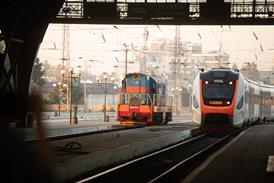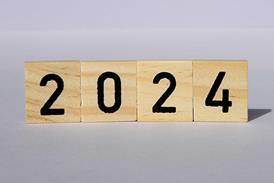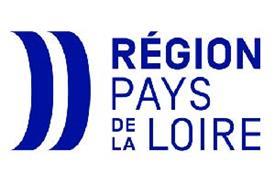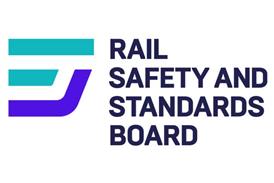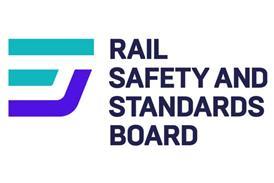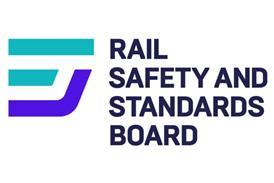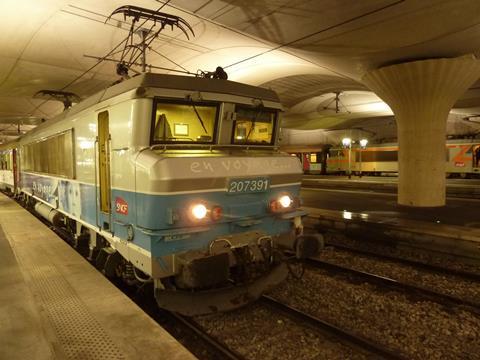
FRANCE: At 20.52 on December 12, the rebirth of France’s domestic overnight passenger network took a step forward with the departure from Paris-Austerlitz of a night train bound for Briançon in the southeast. This was followed an hour later by a second train bound for Tarbes and Lourdes, which also conveyed coaches for Latour de Carol and Cerbère/Port-Bou.
The overnight trains are being revitalised after years of decline, having survived as the rump of a once extensive network, along with a Paris – Rodez train. The Briançon service had been suspended for several months due to engineering work on the route.
Several years of campaigning by rail advocates, environmentalists and politicians in rural areas, all of whom contributed to the Oui aux Trains de Nuit movement, is starting to pay off. A Paris – Nice service was reinstated in May, and the national timetable change saw the Lourdes and Cerbère portions introduced to expand the reach of the domestic overnight network. A Paris – Biarritz – Hendaye service is expected to begin running for the summer 2022 season.
December 12 also saw the resumption of an international overnight service linking Paris with Wien via Karlsruhe and Stuttgart, operated by Austrian Federal Railways as part of its expanding Nightjet network.
Lobbying pays off
The domestic trains are formed of Corail seated and couchette cars, of which SNCF has a fleet of 122 that are being refurbished to support the night train revival. SNCF Voyageurs’ Director of long-distance services Alain Krakovitch explained that the refurbishment would include new moquettes, lighting, wi-fi, power sockets and improved amenity packs for passengers. The trains are hauled by Alsthom-built BB26000 and BB7200 locomotives.
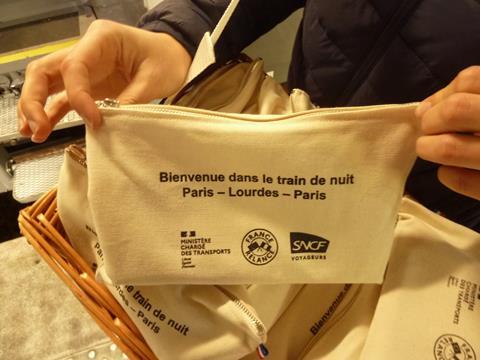
Krakovitch told guests at Paris-Austerlitz that the relaunch had cost in the region of €100m, mostly spent on refreshing the coaches, and that the two trains would each have a capacity of between 400 and 450 passengers. He suggested that the precise details of how the operating costs would be covered was still being negotiated with the government; fares for the trains start from €19 for a reclining seat. Nevertheless, he warned that the trains ‘would inevitably make a loss, because we can only sell a couchette place once per night, compared to selling a TGV seat four or five times in a day’.
A domestic and international network
Speaking at the departure ceremony, Djebbari reiterated the government’s objective of supporting 10 domestic overnight routes by the end of the decade. Other destinations which could be added include Albi, Bayonne, Aurillac, Toulouse, Montpellier and Marseille. Some of these could form part of cross-border routes, to San Sebastián in Spain for example; he also saw potential for routes that do not serve Paris such as Metz/Genève – Nice and Bordeaux – Nice. Many of these trains could operate as portions, building on the services already running. ‘The operating choices remain to be made’, he said.
‘I want promote more European night trains’, Djebbari added, suggesting that the government would call for expressions of interest early in 2022 to support the operations of night trains ‘to link Paris to European capitals: Madrid, Roma, København, maybe even Stockholm’. The Paris – Wien Nightjet service will be complemented by a Paris – Berlin service from the end of 2023.
Fleet renewal
Djebbari also outlined plans for a major investment in new rolling stock, noting that ‘travellers want comfortable night trains. Sleeping cars will therefore make a comeback, in addition to couchette coaches and seats.’ To this end, the government wants to see 300 new vehicles introduced between 2025 and 2030 along with 30 dedicated locomotives and two depots, amounting to a total investment of around €800m.
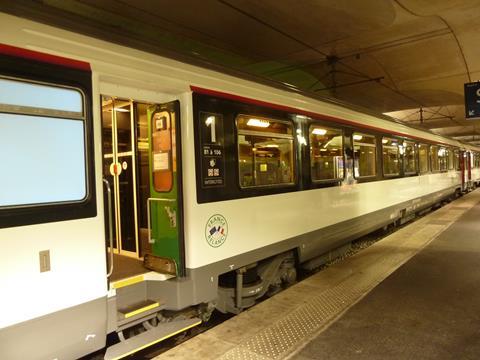
These would be leased by the state from ‘one or more’ rolling stock leasing companies, who would procure the fleet, and made available for deployment by SNCF and other potential operators. ‘The procedures could be launched in early 2022, for new night services from 2026’, Djebbari predicted.

